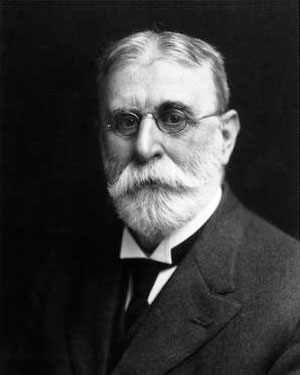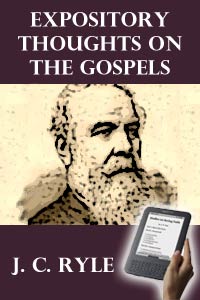Why Doesn't God Extend His Saving Grace To All by B. B. Warfield
 “We may ask, no doubt, why God does not extend his saving grace to all; and why, if he sends it to some only, he sends it to just those some to whom he sends it rather than to others. These are not wise questions to ask. We might ask why Christ raised Lazarus only of all that lay dead that day in Palestine, or in the world. No doubt reasons may suggest themselves why he raised Lazarus. But why Lazarus only? If we threw the reins on the neck of imagination, we might possibly discover reasons enough why he might well have raised others, too, with Lazarus, perhaps many others, perhaps all the dead throughout the whole world. Doubtless he had his reasons for doing on that great day precisely what he did. No doubt God has his reasons, too, for doing just what he does with his electing grace. Perhaps we may divine some of them. No doubt there are others which we do not divine. Better leave it to him, and content ourselves. facing, in the depths of our ignorance and our sin-bred lack of comprehension, these tremendous realities, with the O altitudo of Paul: ‘O the depth of the riches both of the wisdom and the knowledge of God! how unsearchable are his judgments, and his ways past tracing out!’ Or may we not even rise to the great consenting ‘Yea!’ which Christ has taught us: ‘Yea, Father, for so it was well-pleasing in thy sight!’ After all, men are sinners and grace is wonderful. The marvel of marvels is not that God, in his infinite love, has not elected all of this guilty race to be saved, but that he has elected any. What really needs accounting for — though to account for it passes the powers of our extremest flights of imagination — is how the holy God could get the consent of his nature to save a single sinner.
“We may ask, no doubt, why God does not extend his saving grace to all; and why, if he sends it to some only, he sends it to just those some to whom he sends it rather than to others. These are not wise questions to ask. We might ask why Christ raised Lazarus only of all that lay dead that day in Palestine, or in the world. No doubt reasons may suggest themselves why he raised Lazarus. But why Lazarus only? If we threw the reins on the neck of imagination, we might possibly discover reasons enough why he might well have raised others, too, with Lazarus, perhaps many others, perhaps all the dead throughout the whole world. Doubtless he had his reasons for doing on that great day precisely what he did. No doubt God has his reasons, too, for doing just what he does with his electing grace. Perhaps we may divine some of them. No doubt there are others which we do not divine. Better leave it to him, and content ourselves. facing, in the depths of our ignorance and our sin-bred lack of comprehension, these tremendous realities, with the O altitudo of Paul: ‘O the depth of the riches both of the wisdom and the knowledge of God! how unsearchable are his judgments, and his ways past tracing out!’ Or may we not even rise to the great consenting ‘Yea!’ which Christ has taught us: ‘Yea, Father, for so it was well-pleasing in thy sight!’ After all, men are sinners and grace is wonderful. The marvel of marvels is not that God, in his infinite love, has not elected all of this guilty race to be saved, but that he has elected any. What really needs accounting for — though to account for it passes the powers of our extremest flights of imagination — is how the holy God could get the consent of his nature to save a single sinner.

 Visitor: Does the Bible really teach that there is no such thing as chance? My version still says that "time and chance happen to all."
Visitor: Does the Bible really teach that there is no such thing as chance? My version still says that "time and chance happen to all."
 "Nothing whatever, whether great or small, can happen to a believer, without God’s ordering and permission.
"Nothing whatever, whether great or small, can happen to a believer, without God’s ordering and permission.
 In Christ alone is all our trust
In Christ alone is all our trust Below I have some practical and devotional suggestions for your daily prayer life which includes a written list (below) of things you can prayer for which you can print out or cut and paste into digital index cards (like
Below I have some practical and devotional suggestions for your daily prayer life which includes a written list (below) of things you can prayer for which you can print out or cut and paste into digital index cards (like  The following sermons by Jonathan Edwards were hand selected for their helpfulness and tendency to bring honor to Christ and glory to God. Take your time to read and reflect on Edwards expositions and let his thoughts on Scripture carry yours to consider how great and glrious a God we serve.
The following sermons by Jonathan Edwards were hand selected for their helpfulness and tendency to bring honor to Christ and glory to God. Take your time to read and reflect on Edwards expositions and let his thoughts on Scripture carry yours to consider how great and glrious a God we serve.